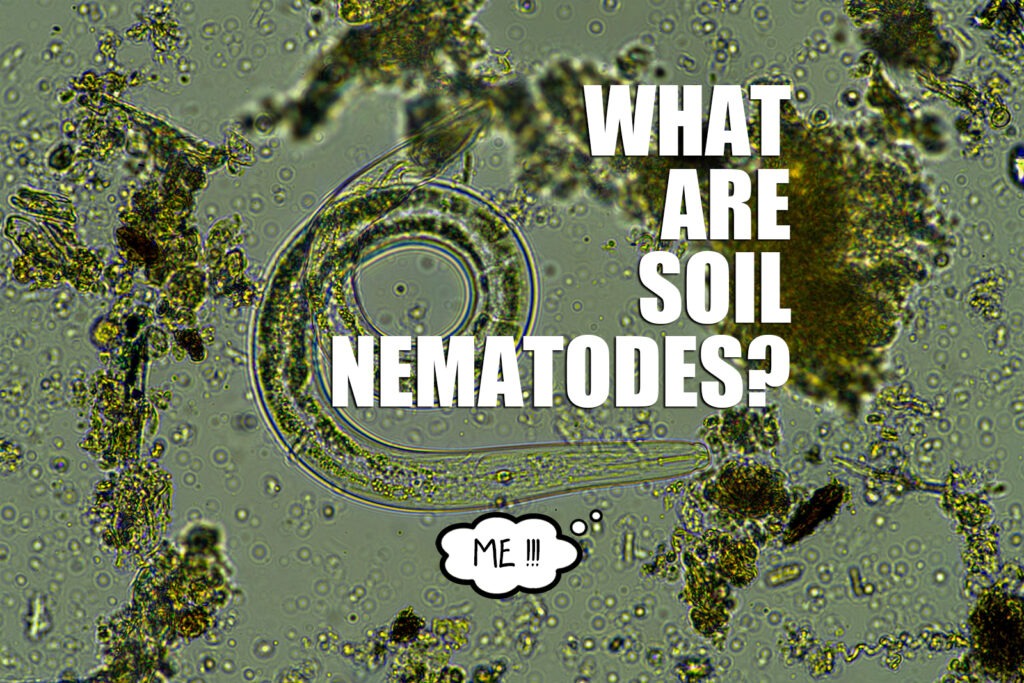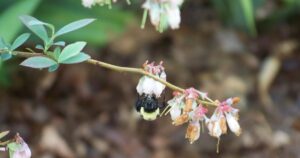
soil nematodes.jpg

Soil Nematodes: The Underground Engineers
Definition:
Soil nematodes are microscopic roundworms inhabiting the soil environment and playing diverse roles in nutrient cycling, organic matter decomposition, and plant-microbe interactions. These tiny organisms are essential components of the soil food web, occupying various ecological niches and contributing to soil health and ecosystem functioning.
Practical Advice:
Understanding the ecology and functions of soil nematodes is crucial for farmers as it enables them to implement management practices that promote beneficial nematode communities and enhance soil fertility and productivity. By fostering a healthy soil nematode community, farmers can improve nutrient cycling, suppress soil-borne pests, and enhance crop resilience.
Fall off the barn roof and busted your keister? Life on the farm or ranch can be tough on the bum. Need a break? Laugh it off at FarmerCowboy.com, the #1 farm humor site. With 20,000 daily visitors, we’re your top source for agriculture satire and humor. Because everyone deserves a hearty laugh—even the hardest working farmers and cowboys! Join us and turn those long days into fun tales at FarmerCowboy.com.
Enlightening Details:
- Trophic Groups: Soil nematodes can be classified into various trophic groups based on their feeding habits, including bacterivores, fungivores, omnivores, and predators. Each trophic group plays a unique role in nutrient cycling and soil ecosystem dynamics.
- Plant Parasitism: Some soil nematodes are plant parasites, feeding on plant roots and causing damage to crops. Plant-parasitic nematodes can reduce crop yields and affect plant health, making them important targets for pest management strategies.
Informative Tips:
- Abundance and Diversity: Soil nematodes exhibit high levels of abundance and diversity in terrestrial ecosystems, with thousands of species occupying different soil habitats. Understanding the abundance and diversity of soil nematodes can provide insights into soil health and ecosystem functioning.
- Indicator Species: Certain nematode species serve as indicators of soil health and ecosystem disturbances, reflecting changes in soil conditions, land management practices, and environmental stressors.
Actionable Suggestions:
- Crop Rotation: Implementing crop rotation practices can help suppress populations of plant-parasitic nematodes by interrupting their life cycles and reducing their host plant availability.
- Biological Control: Introducing predatory nematodes or other biological control agents can help regulate populations of plant-parasitic nematodes and other soil pests, reducing the need for chemical pesticides.
Practical Advice:
Integrating practices that support a diverse and balanced community of soil nematodes is essential for sustainable agriculture. By promoting the presence of beneficial nematodes and managing populations of plant-parasitic nematodes, farmers can improve soil health, enhance nutrient cycling, and optimize crop productivity.
References:
- Neher, D. A. (2010). Ecology of plant and free-living nematodes in natural and agricultural soil. Annual Review of Phytopathology, 48, 371-394. Link
- Ferris, H., & Tuomisto, H. (2015). Unearthing the role of biological diversity in soil health. Soil Biology and Biochemistry, 85, 101-109. Link
- Bongers, T. (1990). The maturity index: an ecological measure of environmental disturbance based on nematode species composition. Oecologia, 83(1), 14-19. Link
Originally posted 2018-10-28 13:47:25.
Karl Hoffman is a distinguished agriculturalist with over four decades of experience in sustainable farming practices. He holds a Ph.D. in Agronomy from Cornell University and has made significant contributions as a professor at Iowa State University. Hoffman’s groundbreaking research on integrated pest management and soil health has revolutionized modern agriculture. As a respected farm journalist, his column “Field Notes with Karl Hoffman” and his blog “The Modern Farmer” provide insightful, practical advice to a global audience. Hoffman’s work with the USDA and the United Nations FAO has enhanced food security worldwide. His awards include the USDA’s Distinguished Service Award and the World Food Prize, reflecting his profound impact on agriculture and sustainability.






